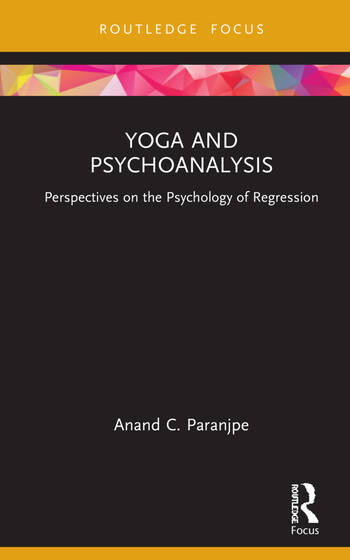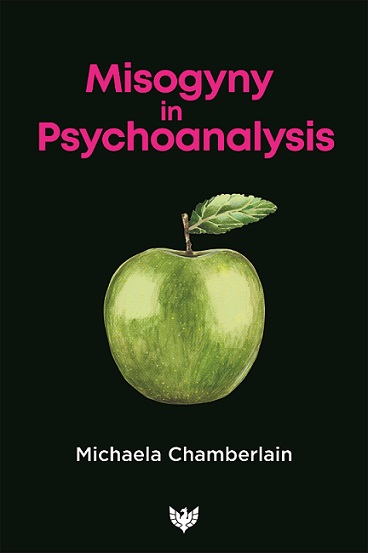Yoga and Psychoanalysis: Perspectives on the Psychology of Regression

Book Details
- Publisher : Routledge
- Published : September 2024
- Cover : Paperback
- Pages : 90
- Category :
Psychoanalysis - Catalogue No : 97614
- ISBN 13 : 9781032247144
- ISBN 10 : 1032247142
There are currently no reviews
Be the first to review
This book discusses the relevance of tracing back the course of individual development noted in psychoanalysis (regression) and in Patañjali’s Yoga (prati-prasava).
Although Freud found the diagnostic benefits in tracing the history of the patients’ early childhood experiences, he also recognized the influences of the history of civilization and evolution. He also viewed the regression to earlier history in a negative light. Ernst Kris, on the other hand, saw some benefits of regression. The nature and extent of the influence of Jewish mysticism on Freud is highly controversial, and scholars have pointed out the possible influence of Kabalarian mysticism, which held that enlightenment follows from going all the way back to the origin of human beings at the beginning of the cosmos. This view has an interesting parallel in Patañjali’s Yoga. This volume highlights these significant parallels in the Indian and the Western systems of knowledge in the study of human psychology and explores the need for their mutual understanding. It also examines converging trends in modern psychology to recognize the need for transcendence of ego in individuals.
This book will be of immense interest to students, teachers, researchers, and practitioners of psychology, psychoanalysis, and Yoga Psychology. It will be of great interest to psychologists, counsellors, mental health professionals, clinical psychologists, yoga enthusiasts, and those interested in transpersonal psychology.
Reviews and Endorsements
It is a fascinating work replete with scholarship and humanity. It offers a powerful methodology to achieve the highest reaches of human nature. The book delineates an outstanding fact that to grow is to go back(!), back to the original state of being and beyond from where human life began. Evolution to the highest state of being, to a state of eternal joy, is through a process of involution.
The book deals elaborately with Freudian methodology of Regression in Psychoanalytical Therapy which releases the dormant and ailing human potential. Further, it takes up even more elaborately the discussion on Patanjali's Yoga System that takes the human through a process of involution. Contrasting Involution with Regression the author goes to show yogic involution takes us beyond the psychoanalytic regression to attain the height of being that is full of Truth, Pure Consciousness and Joy.
The Author has done a tremendous job in delienating and contrasting both Regression and Involution with great scholarship. The book is a great addition to the existing global knowledge on human growth and welfare.
M. S. Thimmappa, Former Professor of Psychology, Bangalore University; Former Vice Chancellor, Registrar and Professor of Psychology, Bangalore University
In this invaluable book, Professor Paranjpe sets Freud’s and Patañjali’s Yoga systems side-by-side, focusing especially on psychological regression, a key concept in each system. Alongside well-known differences, he uncovers fascinating parallels, perhaps some traceable or inspired by Freud’s family heritage of Hassidic Judaism. Paranjpe’s readable, nuanced, and well-balanced treatment is a boon to attempts to integrate eastern and western psychological insights, as well as to comparative scholarship. The volume is highly recommended for seasoned scholars and teachers as well as for students seeking insight about the relation between these two influential views of human psychology.
Doug Oman, University of California, Berkeley
As a Kabbalistic scholar, I found profound insights into the link between Freud, Pantanjali, Yoga psychology, and ontological frameworks in Kabbalah. Anand Paranjpe weaves together significant influences from Kabbalah, Eastern/Western psychology, the works of Patanjali and others, and delivers a sound thesis on Freud's contributions to modern psychology. Especially interesting, are discovering the roots of Freud's inspiration from the Hasadic community, and the similarities from Kabbalah's Zoharic teachings based on the Tree of Life (Etz Chiim). Highly recommend!
Bob Waxman Ph.D, President - Kabbalah Education Network, USA
I found this a compelling work.
It presents and explores the process of 'regression' as manifested in India's traditions of deep psychology. It contrasts this process with its parallel in western psychology. Through this 'regression' lens the reader reviews the history of both eastern and western discoveries in psychology.
I found particularly compelling the author's exposition of regression in yoga psychology as the path that the yogi takes in deconstructing one's personal self, and thus reality itself.
Brian Ruppenthal, Resident Sādhak Ramagiri Ashram, Tomales, California
Yoga Psychology and Psychoanalysis have their own specific contexts and purposes beyond their superficial similarities and applications in enhancing mental health and wellbeing. Professor Paranjpe has just picked one pair of concepts – prati prasava and regression to provide a comparative perspective of the two systems.
The author is already known to academicians internationally for his extensive knowledge and deep scholarship in both Western and Indian philosophical systems from his two earlier works. Once again, he has brought his rich intellectual resources and has demonstrated how we can understand and bridge the Indian and modern psychological thought.
This is a work of great relevance and significance in this juncture because Yoga has become a part of popular discourse. Researchers in many fields like Clinical Psychology, Past Life Regression therapy, Indigenous Psychology, Indian psychology, Transpersonal Psychology, Spiritual psychology, and so forth can avoid many pitfalls by reading this work.
Kiran Kumar K. Salagame, Ph.D., Vice-President, International Transpersonal Association, USA; Fellow, Indian Association of Clinical Psychologists; Former Professor of Psychology, University of Mysore, India
Table of Contents
Introduction
1. The concept of regression in psychoanalysis
2. Conceptual foundations of Yoga
3. The concept of prati-prasava: a Yogic view of regression
4. Patañjali’s view of prati-prasava, continued
5. Kriyā Yoga
6. Looking at Freud’s ideas within his cultural context and in an intercultural context
7. Converging trends of thought within and across cultural traditions
8. Convergence, complementarity, and conclusion
About the Author(s)
Anand C. Paranjpe obtained his PhD at Pune University and conducted post-doctoral research at Harvard University under a Fulbright and Smith-Mundt grant. In 1967 he started teaching at Simon Fraser University in Canada, where he is currently Emeritus Professor of Psychology and Humanities. He is Fellow of Canadian Psychological Association and of the National Academy of Psychology (India).
His major publications include Theoretical psychology: The meeting of East and West (1984) and Self and identity in modern psychology and Indian thought (Plenum, 1998). He co-edited with Professors K.R. Rao and Ajit Dalal the Handbook of Indian Psychology (2008). His more recent publication is a book titled Psychology in the Indian tradition (2016; 2017) which he co-authored with Prof. K. Ramkrishna Rao as its first author. He was invited by the Indian Council of Philosophical Research as National Visiting Professor in 2010-2011 and was recognized as Distinguished Psychologist by the National Academy of Psychology (India) in 2021.
Customer Reviews
Our customers have not yet reviewed this title. Be the first add your own review for this title.







